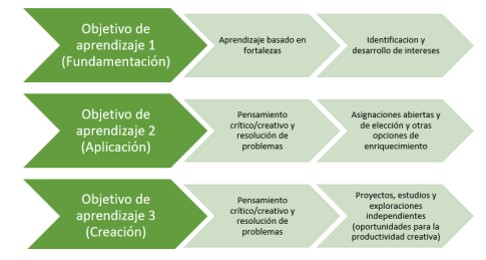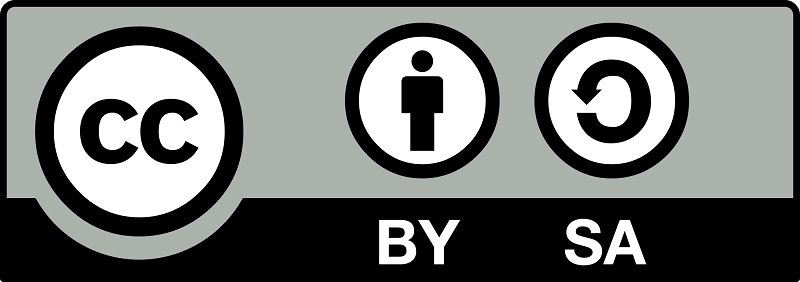
DOI:
https://doi.org/10.14483/22487638.19914Published:
2024-10-27Issue:
Vol. 28 No. 79 (2024): January - MarchSection:
Case studyResultados de aprendizaje en ingeniería para niños con altas capacidades intelectuales
Engineering learning outcomes for children with high intellectual abilities
Keywords:
high intellectual abilities, curricular adaptation, multiple intelligences (en).Keywords:
altas capacidades intelectuales, adaptación curricular, inteligencias múltiples (es).Downloads
Abstract (es)
Objetivo: Desarrollar la adaptación curricular de los resultados de aprendizaje pertenecientes a espacios académicos de ingeniería, para un niño que muestra altas capacidades intelectuales.
Metodología: El estudio de caso corresponde a una investigación de categoría mixta donde se desarrolla la adaptación curricular en el entorno de ingeniería a un niño con índices de altas capacidades intelectuales. Se desarrolla por medio de diferentes etapas: diagnóstico, adaptación curricular y evaluación, teniendo como marco de referencia las inteligencias múltiples a través de una ruta de aprendizaje basada en proyectos.
Resultados: Los resultados obtenidos muestran en el diagnóstico que el sujeto de estudio presenta un alto grado de interés en ingeniería aplicada, así como conocimientos y un grado de interés en fundamentación. La ruta de aprendizaje permitió al estudiante a través de la evaluación presentar un cumplimiento cercano al 95 % de los objetivos de aprendizaje, por medio de aprendizaje basado en proyectos.
Conclusiones: La adaptación curricular pertenece a una estrategia del enriquecimiento curricular, la cual permite a las instituciones educativas adaptar sus objetivos en torno a las necesidades de los alumnos, especialmente de aquellos con altas capacidades intelectuales. Adicionalmente, dicha adaptación se aplica de manera transversal a la ingeniería con el propósito de fortalecer las rutas de aprendizaje y las evaluadoras.
Abstract (en)
Objective: Develop curricular adaptation of learning outcomes pertaining to engineering academic spaces for a child with high intellectual abilities.
Methodology: The case study corresponds to a mixed category research where the curricular adaptation is developed in the engineering environment to a child with high intellectual abilities indexes, the research is developed through different stages such as: diagnosis, curricular adaptation and evaluation, having as a frame of reference the multiple intelligences through a learning path based on projects.
Results: The results obtained show in the diagnosis that the subject of study presents a high degree of interest in applied engineering as well as knowledge and a low degree of interest and knowledge in fundamentals. The development of the learning path allowed the student, through the evaluation path, to present a compliance close to 95% of the learning objectives, by means of project-based learning.
Conclusions: The curricular adaptation belongs to a strategy of curricular enrichment, which allows educational institutions to adapt their objectives to the needs of students, especially students with high intellectual abilities. In addition, curricular adaptation is applied transversally to engineering, strengthening the learning and evaluation routes.
References
Alonso, J. A. y Mate, Y. B. (1996). Superdotados: adaptación escolar y social en secundaria. Narcea Ediciones.
Barbosa, C. P., Ceballos, E. C. y Castellón, L. S. (2008). Identificación de estudiantes con altas capacidades en el Distrito de Santa Marta, Colombia. Universitas Psychologica, 7(1), 251-262.
Castro, J., Gómez, L. y Camargo, E. (2023). La investigación aplicada y el desarrollo experimental en el fortalecimiento de las competencias de la sociedad del siglo XXI. Tecnura, 27(75), 140-174. doi.org/10.14483/22487638.19171
Councill, K. H. y Fiedler, L. (2017). Gifted 101: Unlocking the mystery of academically gifted education. Music Educators Journal, 103(4), 48-56. https://doi.org/10.1177/0027432117697005
Fundación Universitaria Los Libertadores (Ulibertadores). (2022). Nuestra institución. https://www.ulibertadores.edu.co/institucion/
Gardner, H. (1995). Inteligencias múltiples. Paidós.
Janney, R. y Snell, M. E. (2013). Teachers’ guides to inclusive practices: Modifying schoolwork. Brookes Publishing.
Llanos Mosquera, J. M., Hidalgo Suarez, C. G. y Bucheli Guerrero, V. A. (2021). Una revisión sistemática sobre aula invertida y aprendizaje colaborativo apoyados en inteligencia artificial para el aprendizaje de programación. Tecnura, 25(69), 196-214. https://doi.org/10.14483/22487638.16934
Macías, M. A. (2002). Las múltiples inteligencias. Psicología desde el Caribe, (10), 27-38. https://www.redalyc.org/articulo.oa?id=21301003
McGregor, G. y Vogelsberg, R. (1998). Inclusive schooling practices: Pedagogical and research foundations. A synthesis of the literature that informs best practices about inclusive schooling. llegheny University of the Health Sciences. http://eric.ed.gov/?id=ED418559
Ministerio de Educación Nacional (MEN). (2003). Resolución 2565 de 2003. https://www.mineducacion.gov.co/portal/ejes-tematicos/Normas-sobre-Educacion-Preescolar-Basica-y-Media/85960:Resolucion-2565-de-Octubre-24-de-2003
Olszewski-Kubilius, P., Subotnik, R. F. y Worrell, F. C. (2021). Talent development as a framework for gifted education: Implications for best practices and applications in schools. Routledge. https://doi.org/10.4324/9781003238454
Reis, S. M., Renzulli, S. J. y Renzulli, J. S. (2021). Enrichment and gifted education pedagogy to develop talents, gifts, and creative productivity. Education Sciences, 11(10). https://doi.org/10.3390/educsci11100615
Renzulli, J. S. (1976). The enrichment triad model: A guide for developing defensible programs for the gifted and talented. Gifted Child Quarterly, 20(3), 303-306. https://doi.org/10.1177/001698627602000327
Renzulli, J. S. (2012). Reexamining the role of gifted education and talent development for the 21st century: A four-part theoretical approach. Gifted Child Quarterly, 56(3), 150-159. https://doi.org/10.1177/0016986212444901
Rubio Jurado, F. (2009). Los alumnos/as con altas capacidades intelectuales. Innovación y Experiencias Educativas, (19), 1-14. https://archivos.csif.es/archivos/andalucia/ensenanza/revistas/csicsif/revista/pdf/Numero_19/FRANCISCO_RUBIO_JURADO01.pdf
Sternberg, R., Grigorenko, E., Ferrando, M., Hernández, D., Ferrándiz, C., Bermejo, R. y Prieto, M. D. (2010). Enseñanza de la inteligencia exitosa para alumnos superdotados y talentos. Revista Electrónica Interuniversitaria de Formación del Profesorado, 13(1), 111-118. http://www.aufop.com-consultadaenfecha
Torrego, J. (2011). Alumnos con altas capacidades y aprendizaje cooperativo. Un modelo de respuesta educativa. Fundación Pryconsa y Fundación SM.
Tourón, J., Peralta, F. y Repáraz, C. (1996). La aceleración como estrategia educativa para alumnos de alta capacidad académica: concepto, modalidades y evaluación de resultados. Revista Española de Pedagogía, 54(203). https://doi.org/10.22550/2174-0909.2103
Trejos Buriticá, O. I. (2018). Aprovechamiento de los tipos de pensamiento matemático en el aprendizaje de la programación funcional. Tecnura, 22(56), 29-39. https://doi.org/10.14483/22487638.12807
Wigtil, C. y White, W. (2017). Children above 180 IQ Stanford-Binet: A seventy-five year follow-up. Journal of Genius and Eminence, 2(1), 77-91. https://doi.org/10.18536/jge.2017.04.02.01.08
How to Cite
APA
ACM
ACS
ABNT
Chicago
Harvard
IEEE
MLA
Turabian
Vancouver
Download Citation
License
Copyright (c) 2024 Cristian Lozano Tafur, Nelson Eduardo Lozano Espinosa, Didier Aldana Rodríguez

This work is licensed under a Creative Commons Attribution-ShareAlike 4.0 International License.
Esta licencia permite a otros remezclar, adaptar y desarrollar su trabajo incluso con fines comerciales, siempre que le den crédito y concedan licencias para sus nuevas creaciones bajo los mismos términos. Esta licencia a menudo se compara con las licencias de software libre y de código abierto “copyleft”. Todos los trabajos nuevos basados en el tuyo tendrán la misma licencia, por lo que cualquier derivado también permitirá el uso comercial. Esta es la licencia utilizada por Wikipedia y se recomienda para materiales que se beneficiarían al incorporar contenido de Wikipedia y proyectos con licencias similares.

